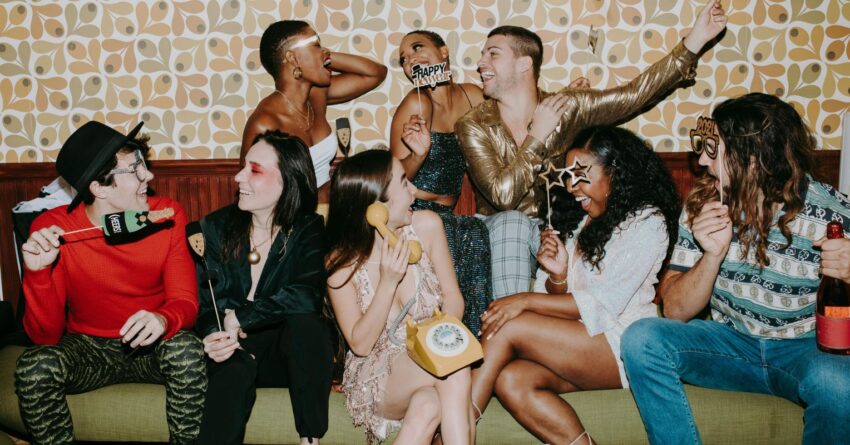
Source: Photo by RDNE Stock project
There’s a collection of strong stereotypes about young Americans. We’ve heard them all. Gen Z is suffering from psychological distress (e.g., depression, anxiety, self-harm) at unprecedented levels. They’re very risk-averse, opting out of getting driver’s licenses, having less sex, and drinking less alcohol. They’re staying in school longer, but also more pessimistic about marriage, parenthood, and home ownership. They’re very passionate about social change and justice, pushing for fundamental, even drastic reforms to combat world problems such as racism, gun violence, and climate change.
One could argue that Gen Z is motivated not necessarily by self-interest but by a strong empathic concern for others, especially those less fortunate. Their passionate activism (driven by concerns about the ills of the world) and their high psychological distress may be both part of a double-edged sword. That is, young people are unable to cope with problems and difficulties in the world, believing that the world is inherently unjust, and are suffering due to a sense that there’s not much they can do to make positive change. Some researchers have also suggested that these generational attitudes and emotional experiences are driven by smartphones and social media. Some even refer to Gen Z as “The Anxious Generation.”
“The Happy Generation”
Just for a minute, let’s imagine an alternate timeline for our world, in which every single one of these trends is flipped. Let’s imagine Gen Z as “The Happy Generation.” In this world, young Americans have the lowest levels of psychological distress ever, with plummeting rates of depression, anxiety, and self-harm. They’re also high in sensation-seeking, with higher-than-ever levels of alcohol consumption, drug use, and automobile accidents. They have many sex partners (and experiment at higher rates of kink and group sex), and rates of unplanned pregnancies and STIs rise sharply.
This generation is hedonistic, opting for monetary pleasure and thinking little about consequences or the problems of the world. Politically, they are the least active and most apathetic generation in living memory. They care little about the troubles of others, but also feel a great sense of inherent justice in the world–they believe that everything will work out as it should. This version of Gen Z feels that problems like climate change, gun violence, and racism are not existential problems, and are fixable with a moderate amount of effort. They feel little anxiety and instead report surging levels of happiness and optimism. They express gratitude for all that they have, glad to be alive at a time in history when things seem to be lining up in their favor.
I think much of our dissatisfaction with modern life comes from a lack of imagination. Not only do we suffer, but we fail to think creatively about how life could be different. Let’s get curious for a minute. Ask yourself, how would you feel if this were the reality for young people today? This hypothetical forces us to confront an uncomfortable but important truth. It may be the case that older adults have an irrational negativity towards young people no matter what they do.
Juvenoia
The discourse about mental health centers on what’s going wrong in the minds of teenagers and young adults. Sometimes this is warranted. If young people are suffering, we want to know why. But we should stop to consider how we would react if they aren’t suffering, and are thriving instead. I hypothesize that regardless of what young people experience, older adults will somehow find a way to spin it in a negative direction.
If teenagers feel heightened anxiety, we’ll lament their misery, point fingers at boogeymen, and demand changes about any new inventions in the modern day that we don’t like (for example, smartphones). And if teenagers have the opposite experience, say, lots of ecstatic pleasure, we’ll react much the same way. We’ll tsk tsk, reminisce about the “good old days,” lecture them about being more responsible, and blame whatever new trend we think may be responsible (e.g., selfies). Call them the anxious generation, the shameless generation, or the happy generation, it makes no difference. Our response will likely be the same–not pride, but contempt.
This is not new. What some commenters and social scientists refer to as “juvenoia” (the term is a combination of ‘juvenile’ and ‘paranoia’) has been used to describe irrational negativity directed towards younger people and youth culture. The hostility towards younger people is often connected to resentment towards whatever is trendy, and advances in technology (e.g., social media) that older people perceive to be inferior.
I don’t think that people today are really that different from when I was growing up. We have many of the same tendencies in our daily lives. And you could make the argument that social life today isn’t really all that different since the middle of the last century. I think it’s very important for us to keep this in mind before we jump to irrational conclusions about how bad things are for young people today. And keep in mind this quote attributed to George Orwell:
“Every generation imagines itself to be more intelligent than the one before it, and wiser than the one that comes after it.”
